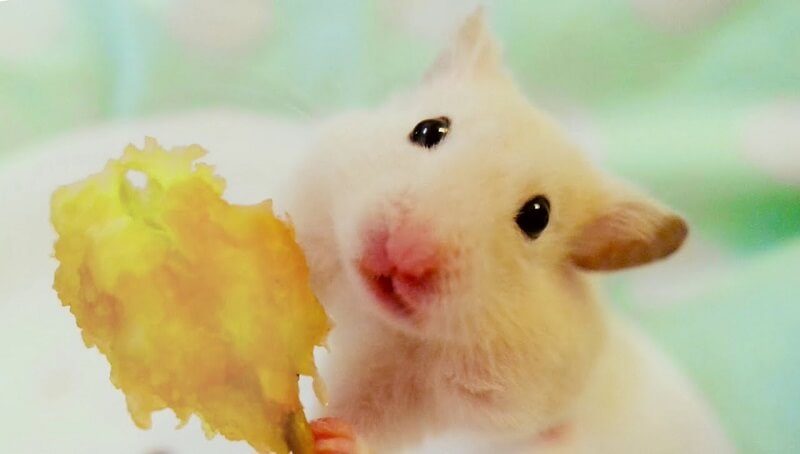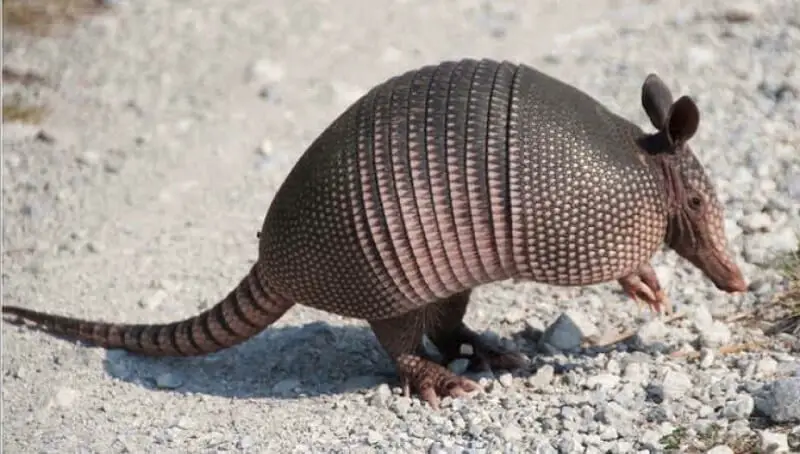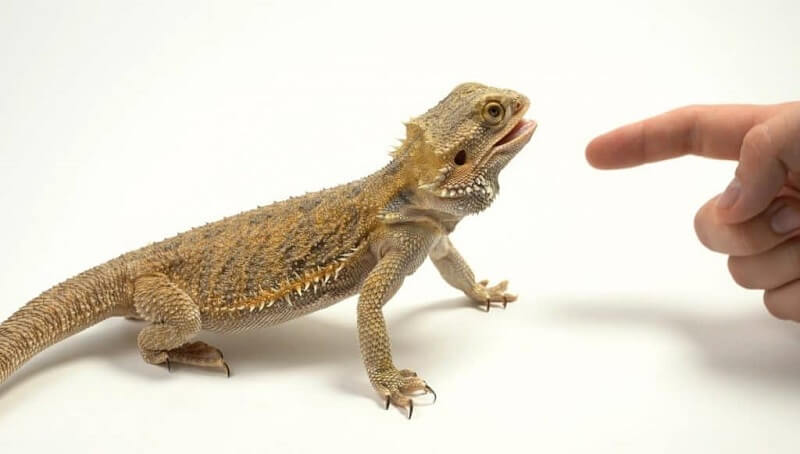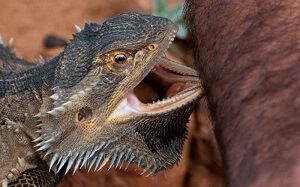
Can Hamsters Eat Apples?
June 24, 2022
Armadillos As Pets – How Are They?
June 26, 2022
Nowadays, bearded dragons have become quite the fad, especially among children. Even so, many people still don’t know whether these lizards attack and bite humans and if they do, how dangerous the bite will be. However, many are still confused about whether these lizards can bite and about how dangerous they can be. This article will make everything clearer on the topic.
It will usually be pretty hard for a bearded dragon to become aggressive. They will most of the time refuse to attack even when they are threatened. Their main defensive measure will be to just freeze, change their color and fluff their throat instead of attacking. They even prefer to run away on some occasions.
But what exactly is a bearded dragon?
It is actually a lizard with a well-muscled but flat body and small to medium size. They are part of the family Agamidae, belonging to the genus of reptiles called Pogona. Among this genus, you will find eight different species, but all of them carry the common name ‘bearded dragon’. Out of all these, the most popular is the Central Bearded Dragon, also known as Pogona Viticeps. These lizards will have a lifespan in captivity of anywhere between 11 and 14 years.
You might also like my articles on whether bearded dragons can eat grubs, kohlrabi, or banana peppers.
Bearded dragons as pets
These creatures will usually be found in the desert regions and are native to Australia. They are mainly kept as pets and have gained a lot of popularity ever since 1990 when they were introduced to the U.S. They are also very loved and very popular among children. There are a lot of reasons why they are among the most sought-after pets. They really like to be handled, are pretty easy to raise and manage, and are very quiet and gentle in nature. Considering that they will almost never harm or even jump at their owner, they are among the safest pets you can keep. They will only get aggressive with other animals, mostly when hunting to eat.
When can they attack?
They might also become aggressive and attacked when they feel provoked, mostly when they are threatened or stressed out. When they attack, they will most likely try to bite. Of course, as said before, this rarely happens. They might sometimes bite even when they don’t feel threatened, if they, for example, associate your finger with a type of food they like. This is when they would bite, trying to chew on it.
What should you do in such cases?
The first thing you need to do when you are bitten by a bearded dragon is to keep your calm. Try not to move your hand too fast, as you could make things worse if the lizard will still hold on to it. What you should do instead, is to use your free hand to calmly support the lizard, while trying to move its jaws apart gently and slowly.
What could their bite cause?
Usually, you shouldn’t expect their bites to have any serious long-term or persistent consequences and no actual side effects. Even so, you should expect profuse bleeding and swelling around the bite area. Its bite can still hurt a little depending on how hard it bites, but it’s nothing compared to the bite of other pets like a cat or a dog. The bite of a bearded dragon will usually be less painful than its scratch, which could leave a bigger wound.
Are they poisonous?
 Scientists have managed to demonstrate that bearded dragons do in fact produce a sort of venom. Even so, it is very mild and basically harmless to a human-sized creature and most animals of a decent size. It is probably what’s left of the venom its ancestors used for hunting. This is why if you are bitten, getting poisoned is probably the last thing you should think about. Instead of being harmful, the venom of some bearded dragon species, like the Mexican one, for example, has been used successfully for different medications. It is part of a medication that helps with diabetes, for example. Due to the presence of three important amino acids, the venom of this lizard is also used in heart disease treatment.
Scientists have managed to demonstrate that bearded dragons do in fact produce a sort of venom. Even so, it is very mild and basically harmless to a human-sized creature and most animals of a decent size. It is probably what’s left of the venom its ancestors used for hunting. This is why if you are bitten, getting poisoned is probably the last thing you should think about. Instead of being harmful, the venom of some bearded dragon species, like the Mexican one, for example, has been used successfully for different medications. It is part of a medication that helps with diabetes, for example. Due to the presence of three important amino acids, the venom of this lizard is also used in heart disease treatment.
Any risk of intestinal problems?
Although most of the time you will have nothing to worry about when you are bitten by a bearded dragon, from time to time there is a risk you should consider. This isn’t due to the bearded dragon’s venom, but due to salmonella, a bacteria that is known to be found quite a lot inside the mouth of the lizard, which can be transferred to the victim through the bite. This can cause pretty serious intestinal problems. This is why, if you are bitten, it will be a must to scrub your hands with hot water and anti-bacterial soap, to avoid an ugly infection. In case of stronger bites, you can even consider taking a tetanus shot, if one hasn’t been given to you in the past 5 years.
Signs of a possible bite
You can avoid these types of bites if you learn to recognize the aggressive behavior of these creatures. Some of the common signs will be a hissing sound, changing their color to a darker tone, or fluffing up the throat. These are only a few of the signs you should look out for. When you notice any of these changes in behavior, you should try not to disturb the lizard. If it starts giving out these signs while you hold it, gently place it back into its habitat. Some people say that if you get over these signs and continue to handle these pets, you will actually build a stronger bond with them. If you want to risk this, at least wear gardening gloves for your protection.
In conclusion, although a bearded dragon’s bite isn’t all that dangerous, it will still require your attention and in some instances, minor treatment.
